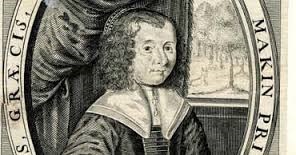 ‘Must
we suppose that if a woman knows a little Greek and Latin she must be a
drunkard, and virago?’ Thus wrote Anne Donnellan in 1762. She was outraged that in Henry Fielding’s novel Amelia, the
only woman with a classical education is immoral and dissipated.
‘Must
we suppose that if a woman knows a little Greek and Latin she must be a
drunkard, and virago?’ Thus wrote Anne Donnellan in 1762. She was outraged that in Henry Fielding’s novel Amelia, the
only woman with a classical education is immoral and dissipated.
In
the 19th century, women classicists were held to be physically repellent
and borderline insane, as demonstrated by this cartoon instructing male students at
Glasgow which women to avoid. Reading Sophocles and Aristotle (right) was a sure sign
that the woman was a witch; go for the one who studied sketching and music
instead.
It
was to rescue some of the real foremothers
of female experts on ancient Greece and Rome that with Rosie Wyles I have just
published Women
Classical Scholars. It contains twenty essays, by an erudite, committed team, on
just some of the remarkable philologists, who happened to be female, born
between the Renaissance and WWI, and
working in lands from Russia to post-bellum USA.
 |
| Sarah Parker Remond, Abolitionist Latin Scholar |
The
appendix to the Introduction points to many others, from New Zealand to Romania,
who came to our attention too late to include. We hope they will now receive
the attention they deserve: potential PhD students, please take note! They were
identified through an outstandingly successful exercise in crowd-sourcing, via
the Facebook Group Classics
International—global collective research at its most exciting.
 |
| Prof. Dorothy Tarrant |
And
the book’s publication coincides with other exciting signs that the
long-overdue feminist reappraisal of the history of classics is about to enter overdrive:
· The unflagging UK Women’s Classical Committee
is offering training you can
sign up for to encourage better coverage of women scholars on WIKIPEDIA.
·
The lifelong supporter of women now
directing the Institute of Classical Studies, Professor Greg Woolf, is systematically
reviewing the under-representation of women in for example the named ICS
fellowships—I’m delighted that Dorothy Tarrant (1885-1973), the first ever UK
female Professor of Greek, is finally to be honoured.
·
I was interviewed
by Yung In Chae for the online magazine Eidolon
and we discussed how the history of women scholars could illuminate the still
far from satisfactory position of women in academia.
·
The research trend is expanding
internationally; Rosie and I were invited to talk about our work at an excellent
conference in Pisa this week exploring the way women scholars in the late
19th and 20th centuries broke down boundaries between
classics and philosophy, anthropology, literature and above all between the
Ivory Tower and the public. Inspirational. So was the hospitality and
especially the free beer and wine ON TAP in the staff refectory.
 |
| Pisa friends including Rosie, Massimo Stella & Alessandro Grilli |
And
our book changes the visual associations of classics as a discipline. It contains
portraits of most of our subjects, our personal response to the endless Old
White Male Clerics who gazed down at us coldly in the college dining
halls and libraries we inhabited as students. We want our smiling foremothers
to hang alongside them in our collective memory, not in a different building.













I attended a course of lectures by Alison Duke of Girton when I was studying classics at Cambridge in the early 70's - (a rather tedious text on a chap called Callicles and a water course dispute in Demosthenes) There weren't so many other women in the faculty at the time. Joyce Reynolds had retired - there was Pat Easterling of course. Coming back to Alison Duke - she is mentioned by Kenneth Dover in his infamous autobiography. He drove from St Andrews to Girton to pick up notes left by another woman classicist who had died. I'd have to dig the book ouu of the loft to find out who it was. I seem to remember that it was connected to his studies on word order. Maybe you can supply a name.
ReplyDelete